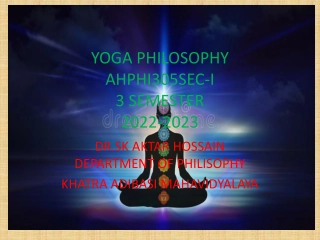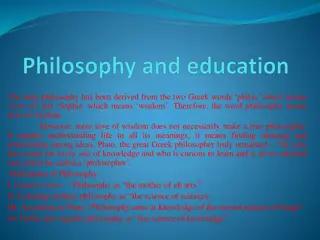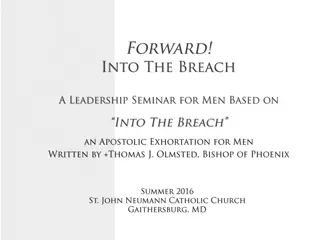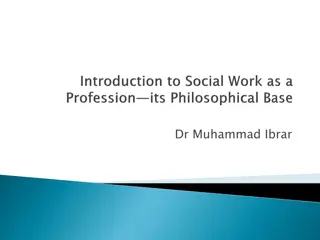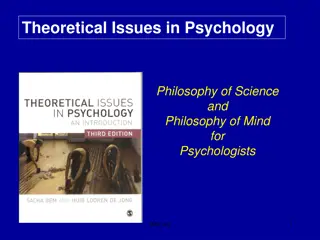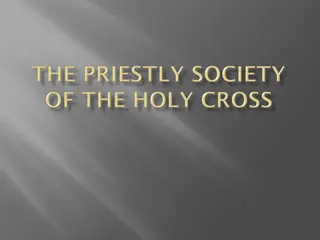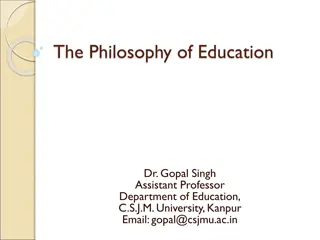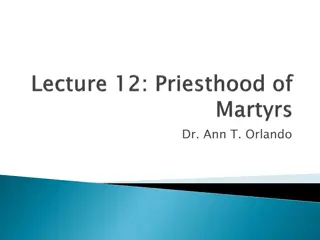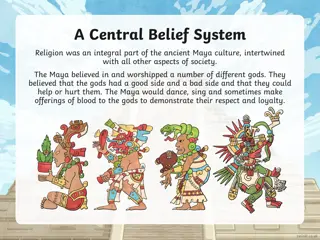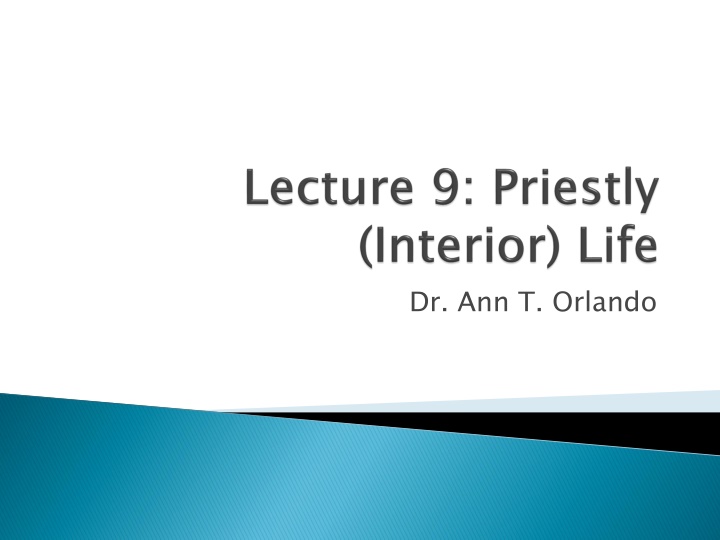
Ancient Philosophical and Monastic Practices in Religious Life
Explore the historical origins of contemplative and monastic practices in the lives of priests, from the incorporation of contemplative life into pastoral duties to the influence of Greek philosophical schools. Learn about influential figures like Dr. Ann T. Orlando and the contemplative traditions of the Therapeutae monastic group near Alexandria. Delve into the solitary lives of early Christian hermits who sought spiritual growth in solitude, guided by mentors like St. Antony.
Download Presentation

Please find below an Image/Link to download the presentation.
The content on the website is provided AS IS for your information and personal use only. It may not be sold, licensed, or shared on other websites without obtaining consent from the author. If you encounter any issues during the download, it is possible that the publisher has removed the file from their server.
You are allowed to download the files provided on this website for personal or commercial use, subject to the condition that they are used lawfully. All files are the property of their respective owners.
The content on the website is provided AS IS for your information and personal use only. It may not be sold, licensed, or shared on other websites without obtaining consent from the author.
E N D
Presentation Transcript
The philosophical life of the priest Vita contemplativa Earlier antecedents Monastic models Incorporation of vita contemplativa into life of the pastor Priestly role models
Most Greek philosophical schools encouraged followers to follow a contemplative life Stoic priests Wise man who studies the cosmos Living in accord with Providence Epicureans Encouraged a gathering of small groups of friends Live outside (beyond) society Men and women Continent and temperate
Therapeutae a monastic group living in the countryside near Alexandria Men and women Semi-hermits Life devoted to individual prayer and study Scripture read allegorically was basis for contemplation Gathered on Sabbath to pray and sing hymns together
Follow Jesus into the desert to learn in solitude to avoid temptation Can be traced to mid-Third Century, especially in Egypt Anchorites A novice met with an abba or amma for guidance on leading this sort of life Usually came together on Sundays for liturgy, readings and a meal
Born c 270 in Alexandria, died c. 350 in desert convent Inherited wealth from her parents, very well educated Converted to Christianity Gave money to poor Lived life of a hermit in a martyr s crypt Especially drawn to works of Evagrius of Pontus Many women came for her guidance, and a convent formed around her Her sayings (instructions) are included in compilations of Desert Fathers Contemporary of St. Antony
From a wealthy family near Alexandria When parents died, he made provisions for his young sister, then taking Mt 13:21 as his guide went into desert Also lived among tombs of martyrs Supported Christian martyrs during Great Persecution Vehemently opposed to Arianism Offered guidance to those who wanted to follow his way of life
Athanasius is encouraged to write the Life shortly after Antony s death, c 356 Purpose seems to have been to make Antony the model for Christian asceticism and contemplation Almost immediately translated into Latin By the time Augustine reads it (384) one of the most read works Antony strives for the life of virtue and contemplation of God Most likely the first Christian biography of someone who was not a martyr
Abba Pachomius (292-348) and his sister, Amma Mary, establish a communal house for men and women, respectively According to the Rule, Pachomius received the Rule in a vision from an angel Established communal way of life When he died, there were 8 monasteries with 100 monks each in Egypt following this rule, and by 400 the Pachomian monasteries had spread to Palestine
Very important in development of Greek Christian spiritual practice Rule for monastic orders Divine Liturgy still in use Wrote against the Arians, and also developed a theology of the Trinity, affirming the divinity of Son and Spirit Wrote many homilies on Scripture; some of which were very influential on St. Ambrose of Milan who translated them into Latin Famous for hospitals and monasteries that he established Called Great in his own lifetime
Based on his visit to St. Pachomius as a young man Really a series of questions and answers from ascetics to Basil, collected in the Asceticon Basil emphasizes importance of living in community Doubts value of solitaries; Need practice of love that community requires Whose feet will you wash? No abbots; more like rule by elders (presbyters)
Basic recognition that to fully develop the interior, contemplative life, requires some separation from the world Origen encourages a study of philosophy as the way to prepare for contemplation to the young presbyter, Gregory of Thaumaturgus Ambrose encourages the young priest Irenaeus to follow the path of wisdom Pythagoras Moses Augustine directs his presbyters to live in common with him to study together
Born in Cappadocia Studied with Origen for several years in Caesarea Origin and Gregory exchanged letters Gregory always looked to Origen as a guide Wrote a eulogy about Origen Upon returning home, he was ordained bishop He was blessed with a vision of the Blessed Virgin (earliest recorded) Gregory of Nyssa wrote a biography of Gregory of Thaumaturgus
What Gregory Learned from Origen that helped him as a bishop Words are images of what is going on in our souls Origen persuaded Gregory to study philosophy, linking this with upright moral behavior Origen saw philosophy as a way to masters of impulses, not just doctrines Origen made them lovers of virtue Piety is the mother of virtue Origen could teach so well because he was in fellowship with the Spirit
A subject of scholarly debate whether or not Augustine himself wrote a Rule Certainly from Augustine himself: Letter 211, To quarreling nuns On Work of Monks Possibly from Augustine: Ordo Monasterii Praeceptum Regularis Informatio
1 What is role of philosophy in Christian study? 2 Why might study of philosophy be dangerous? 3 How do each of these readings define virtue? 4 Can Christian life (especially the vowed life) be learned from books? 5 What is the role of the teacher in priestly formation?
Philo, On Contemplative Life Origen, Letter to Gregory, ANF 9 ADDED: Gregory of Thaumaturgus, Address of Thanksgiving to Origen Ambrose, Epistle XXVIII Athanasius, Life of Anthony, ch 1- 7; 72-80 Augustine, Augustine, Ordo Ordo Monasterii Monasterii


